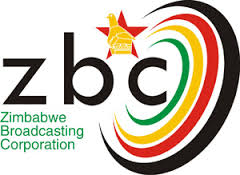Story by Bruce Chahwanda
Government’s ability to narrow the country’s budget deficit to 0.9 per cent in the last quarter of 2022 has been described as a milestone achievement that has boosted the country’s capacity to forge ahead with the implementation of various infrastructure development projects.
The implementation of the National Development Strategy 1 is in full throttle, with one of the success stories being the massive reduction of the country’s budget deficit to less than 1 per cent in the fourth quarter of last year.

This was confirmed by the Acting Minister of Information, Publicity and Broadcasting Services, Honourable Jenfan Muswere during a Post-Cabinet Briefing this Tuesday.
“Under the Economic Growth and Stability TWG, the nation is being informed that the NDS1 target for inflation in the Fourth Quarter of 2022 was 26.3%. The government tightened the monetary and fiscal policy stance, maintained Central Bank accommodation rates at 200% and ordered a review of the public procurement process to ensure value for money payments to contractors. The budget deficit declined from an NDS1 target of 1.65% to 0.9%, reflecting conformity with the SADC Macro-economic Convergence Criterion of fiscal deficits below 3%,” he said.

The narrowing of the budget deficit comes as an advantage to government and capital projects being undertaken across the country.
Economic analyst Dr Abicia Ushewekunze said, “Managing budget deficit shows government’s economic policies are paying dividends. This also gives impetus to capital projects that the government has embarked on. We have seen massive infrastructure development across the country, talk of road rehabilitation and rural industrialisation.”
During the post-Cabinet briefing, Honourable Muswere also confirmed that apart from the over 400 kilometres opened to traffic on the Harare-Masvingo-Beitbridge Highway, the government is happy that as many as 19 airlines were flying into Zimbabwe by the end of 2022, while the national broadband programmes is gaining traction at nearly 70 per cent penetration rate.
Zimbabwe has for years grappled with a huge budget deficit and the latest development, coupled with the use of domestic funds in the implementation of capital projects is expected to see the country relying less on loans and grants from international financiers.




